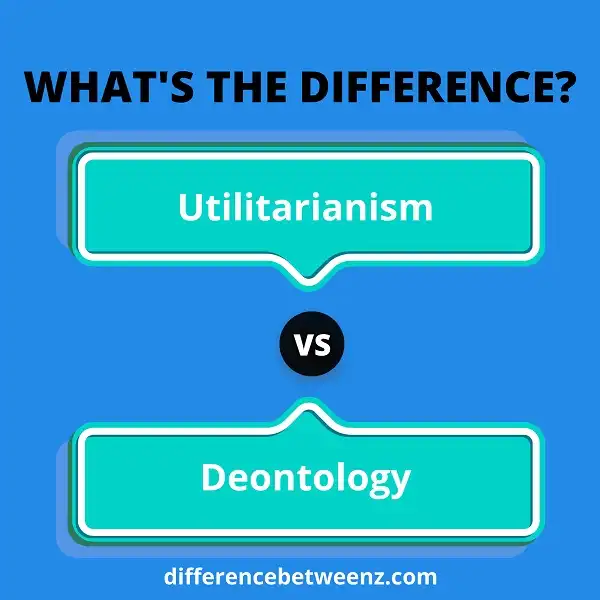When making ethical decisions, people have to consider two Schools of thought- utilitarianism and deontology. While both have overlapping principles, they differ in the weight that is given to the consequences and the rules respectively. This essay will explore these two theories in detail and illustrate how they can be applied to moral decision-making.
What is Utilitarianism?
Utilitarianism is an ethical theory that holds that the best course of action is the one that maximizes utility, typically defined as happiness or pleasure. Utilitarians believe that actions are right or wrong based on their consequences and that the proper course of action is the one that results in the most good for the most people. In recent years, utilitarianism has been increasingly influential in public policy debates, particularly with regard to issues such as healthcare and animal rights. Supporters of utilitarianism argue that it is a practical and effective way to make decisions, while critics contend that it can lead to morally questionable outcomes.
What is Deontology?
Deontology is an ethical theory that holds that actions should be in accordance with universal moral principles. Deontologists believe that there is a duty to follow the moral law, regardless of the consequences. Deontology is often contrasted with consequentialism, which holds that the rightness or wrongness of an action depends on its consequences. Deontologists argue that some actions are intrinsically wrong and should never be done, even if they would result in a net increase in happiness. For example, most deontologists would agree that it is always wrong to lie, even if doing so would lead to good consequences. Deontology is named after the Greek word for duty, ἔργον (ergon). Deontological theories are often contrasted with teleological theories, which focus on the goodness of the outcome of an action rather than the intrinsic nature of the action itself. Deontology is a major branch of normative ethics.
Difference between Utilitarianism and Deontology
- Utilitarianism and Deontology are two major ethical theories. Utilitarianism holds that the right thing to do is what leads to the greatest good for the greatest number of people. In contrast, deontology focuses on the duties and rights of individuals, regardless of the consequences. Both theories have their proponents and detractors, but each offers a unique perspective on morality.
- Utilitarianism has its roots in the work of Jeremy Bentham, who argued that an action should be judged according to its consequences. If that action results in the greatest happiness for the greatest number of people, then it is the right thing to do. This theory is often criticized for beingTooley_Peter_15421799 utilitarianism too simplistic, as it fails to take into account the complexities of human morality. However, its proponents argue that it is the most logical and effective way to make moral decisions.
- Deontology, on the other hand, is based on the work of Immanuel Kant. Kant argued that our actions should be based on duty, not on whether they will lead to a good outcome.
Conclusion
While both Utilitarianism and Deontology have their merits, it’s important to understand the difference between the two before making a decision about which ethical theory to follow. Utilitarianism is more concerned with the consequences of an action, while Deontology focuses on the act itself. When making a decision, it’s important to consider all aspects of each theory in order to make the best choice for your individual situation.


